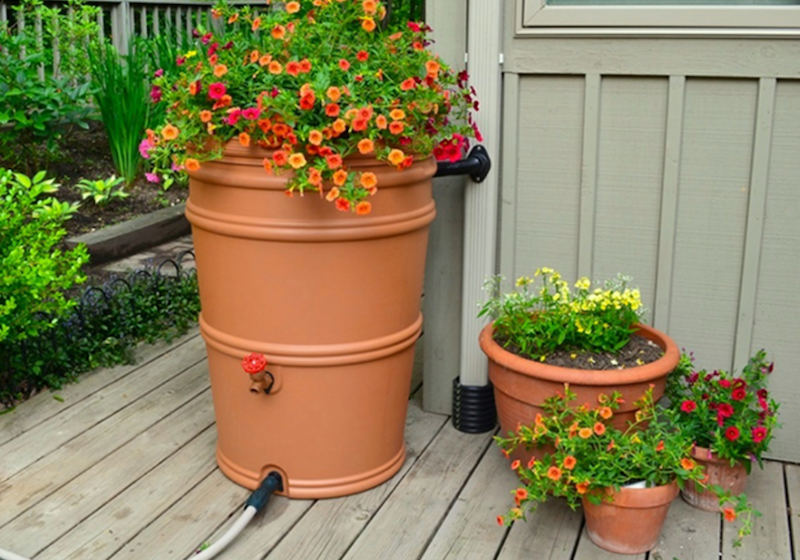By Dennis Patton, Horticulture Agent, Johnson County K-State Research and Extension
Follow this simple advice to prevent your rain barrel from turning into a giant ice cube and to keep it low-maintenance year round before Midwest weather begins dipping into freezing temperatures.
Rain barrels have become increasingly popular in helping to conserve water use in the garden. They usually require very little care, but a few season-ending tasks will protect your investment.
1. Remove debris from screens, hoses, valves
Throughout the growing season, rain barrels tend to collect organic materials such as leaves, tree pollen and other materials. Regular cleaning to remove debris will extend the life of the barrel and prevent clogging.
This time of year the screens should be removed and cleaned, and hoses should be checked for leaks and clogs. Check that the overflow value is not clogged, as this prevents the barrel from overflowing and discharging water next to the foundation. This will save headaches later.
2.Clean sediment from barrel
Rain barrels also should be checked for sediment in the bottom of the barrel. If a large amount of debris has found its way into the barrel, turn the barrel over and wash out the deposits.
3. Empty water to prevent freezing and cracking
What about winter freezing? The most common recommendation is to empty the rain barrel before freezing weather and unhook it from the downspout.
Depending on the construction and type of barrel used, some can freeze and rupture with freezing and thawing. Some barrels are made from extremely heavy plastic that can tolerate the freezing water.
When in doubt, it is best to empty the barrel before it freezes. The barrel can simply be turned upside down for the winter, or brought into a storage area for winter care.
The other option is to open the valves and let the water flow through the rain barrel and be discharged into the yard. This will prevent the accumulation of water and pressure placed on the container when water freezes and expands.
Rain barrels are a great way to save gallons of water. Protect your investment during winter.

How about adding RV antifreeze?